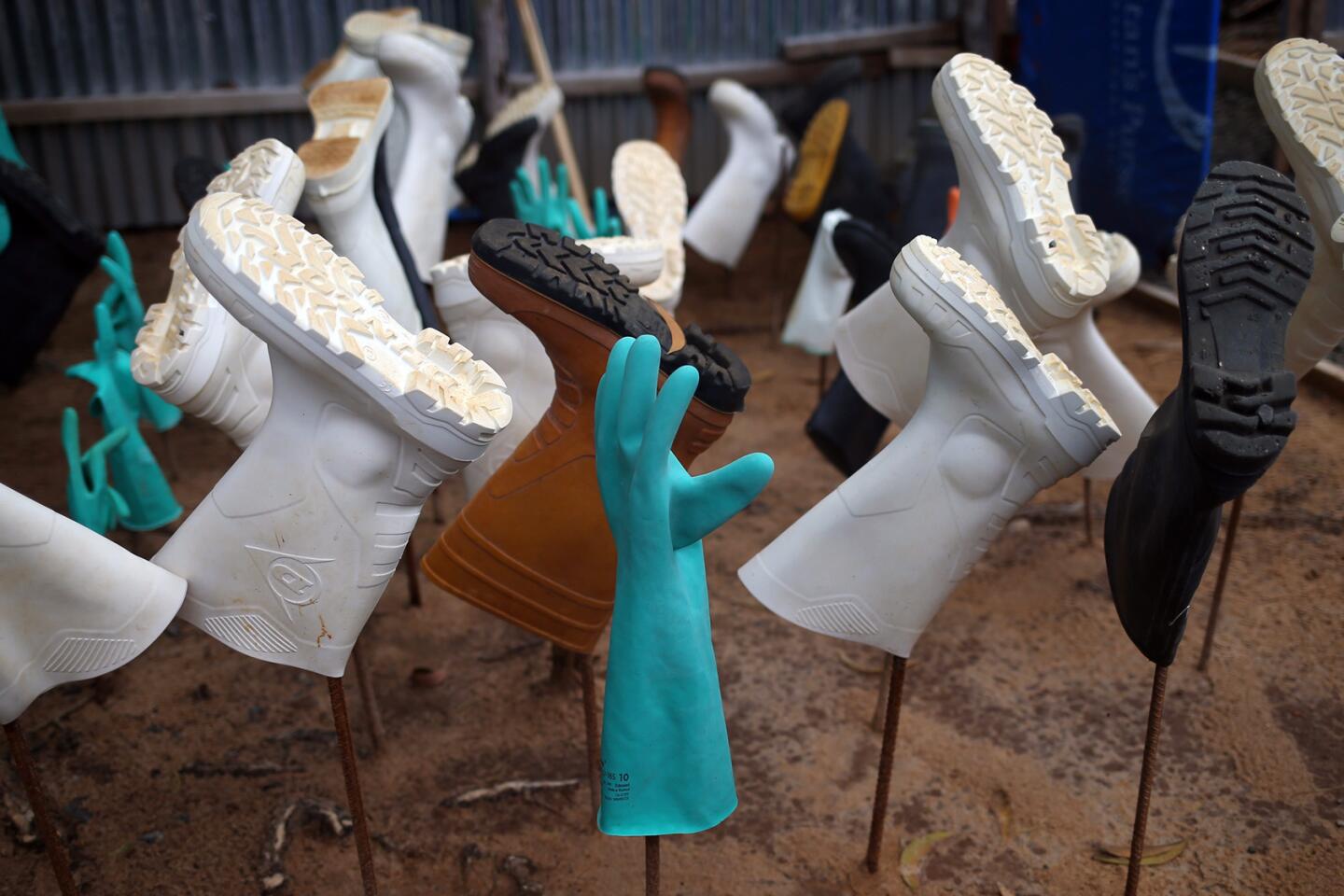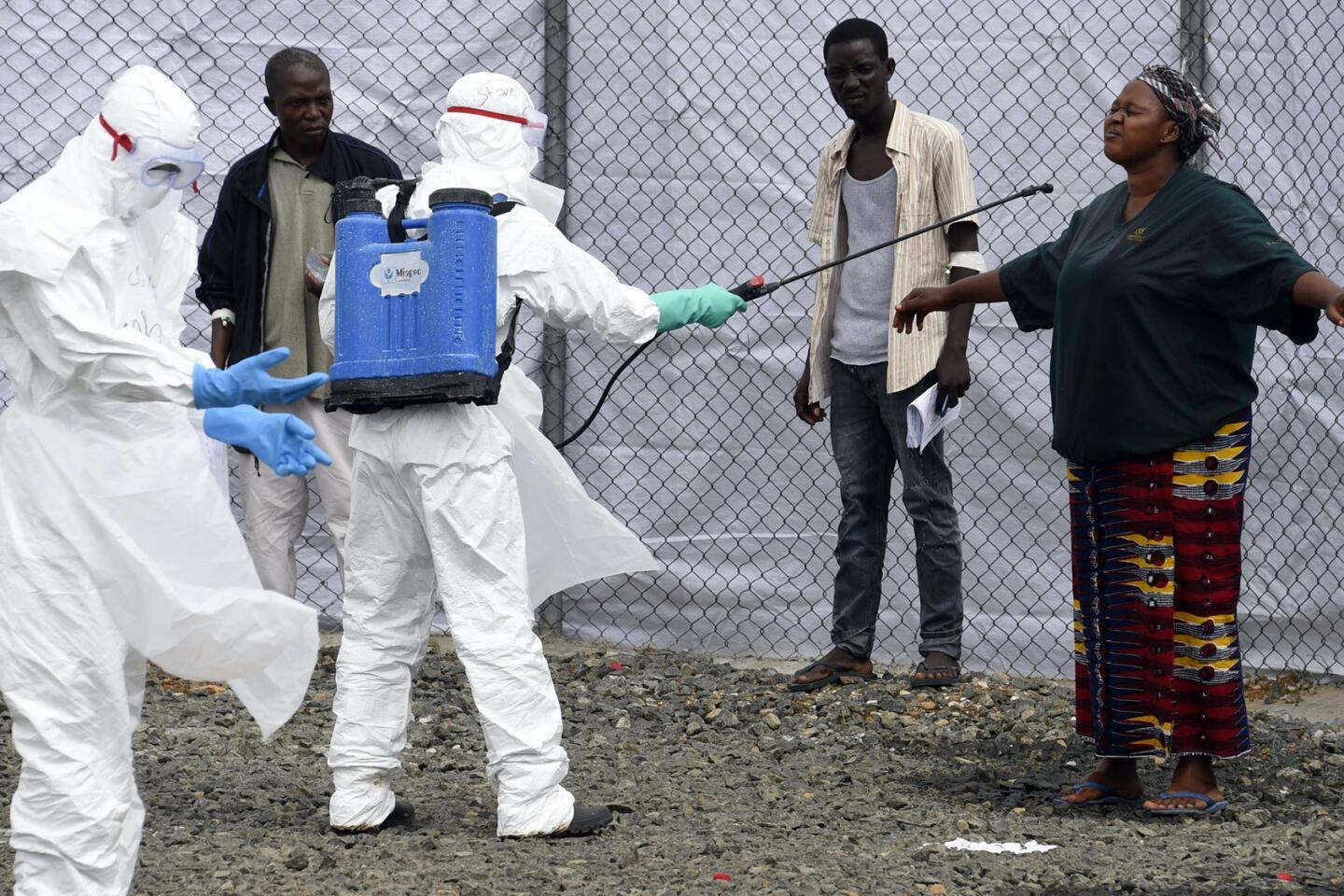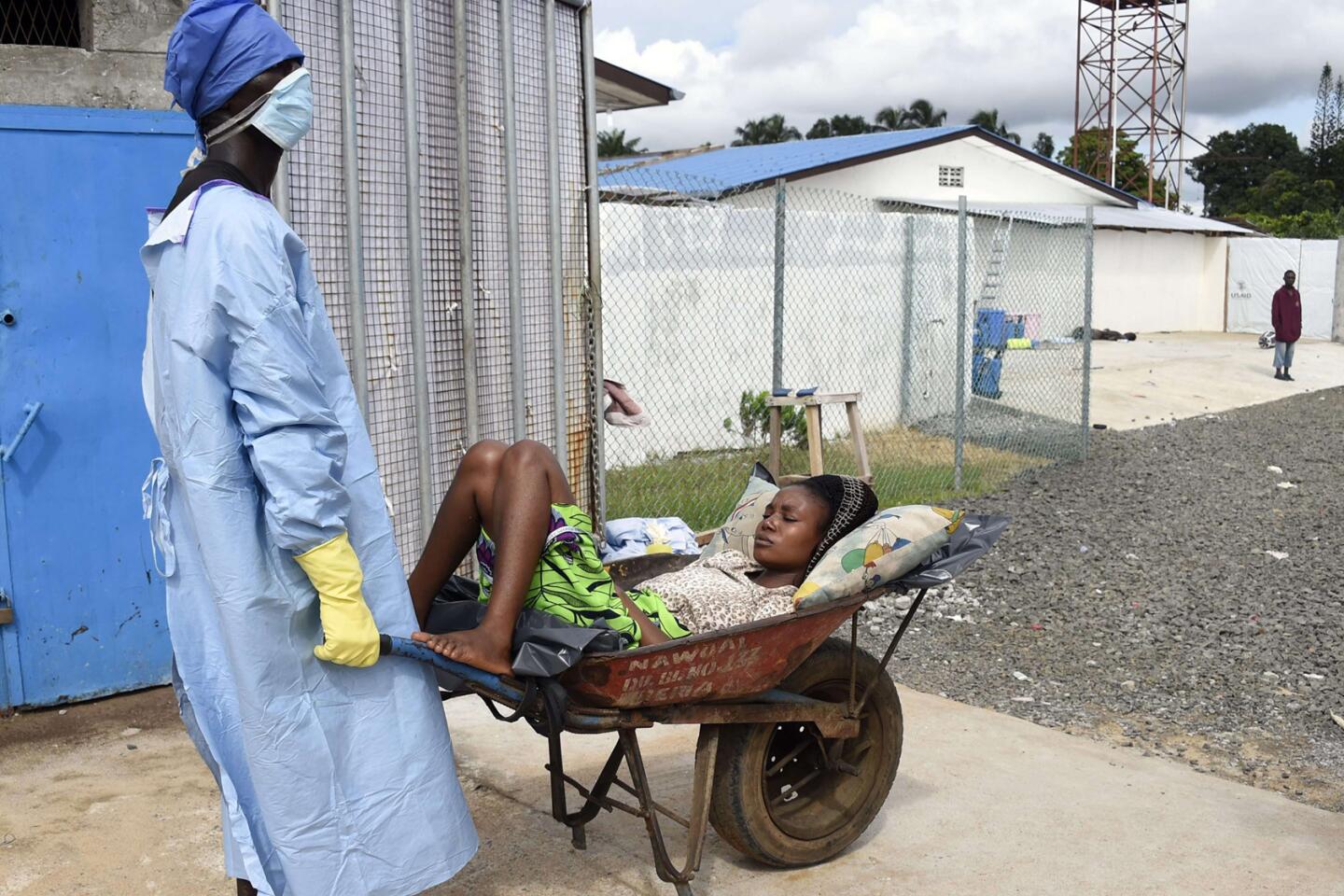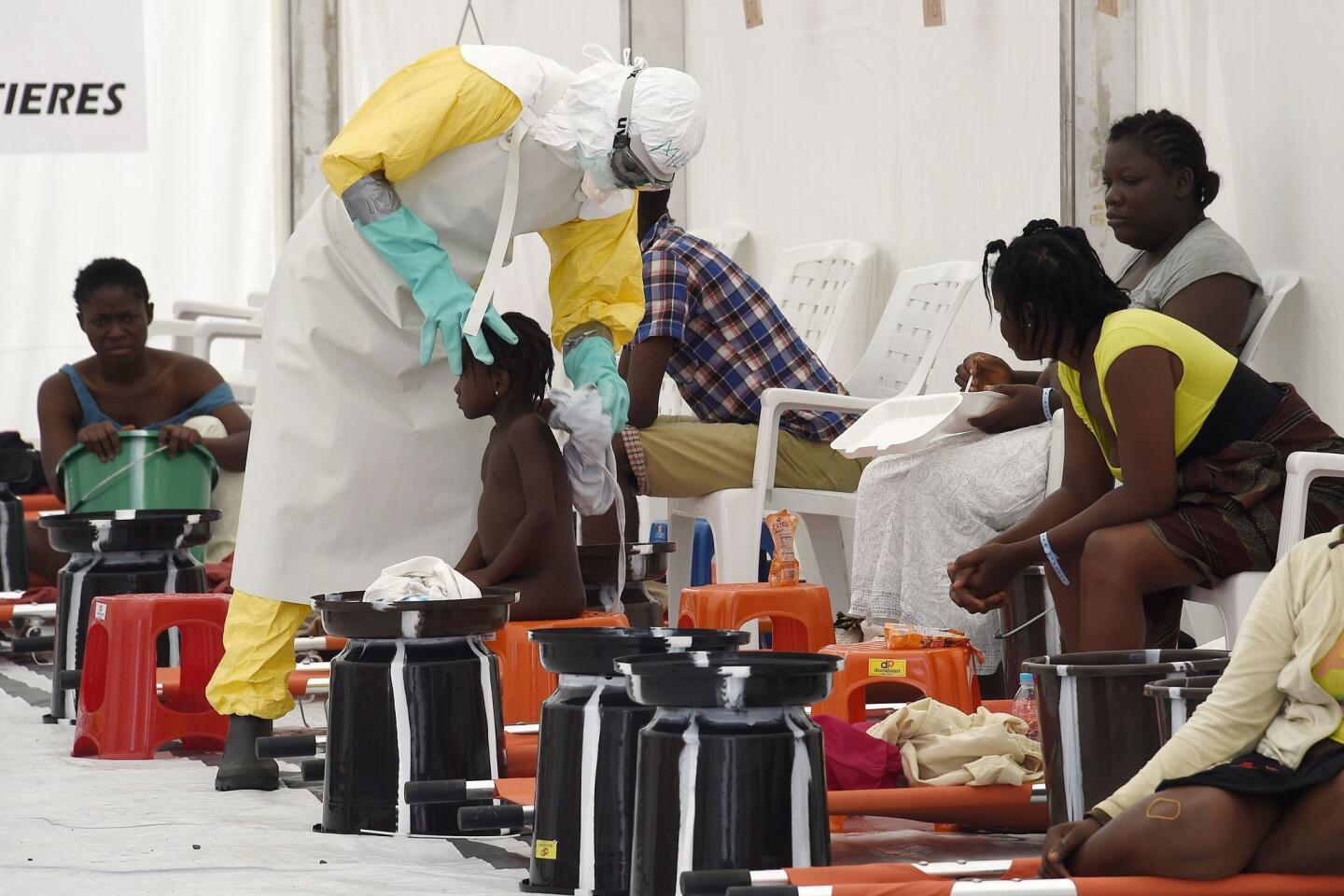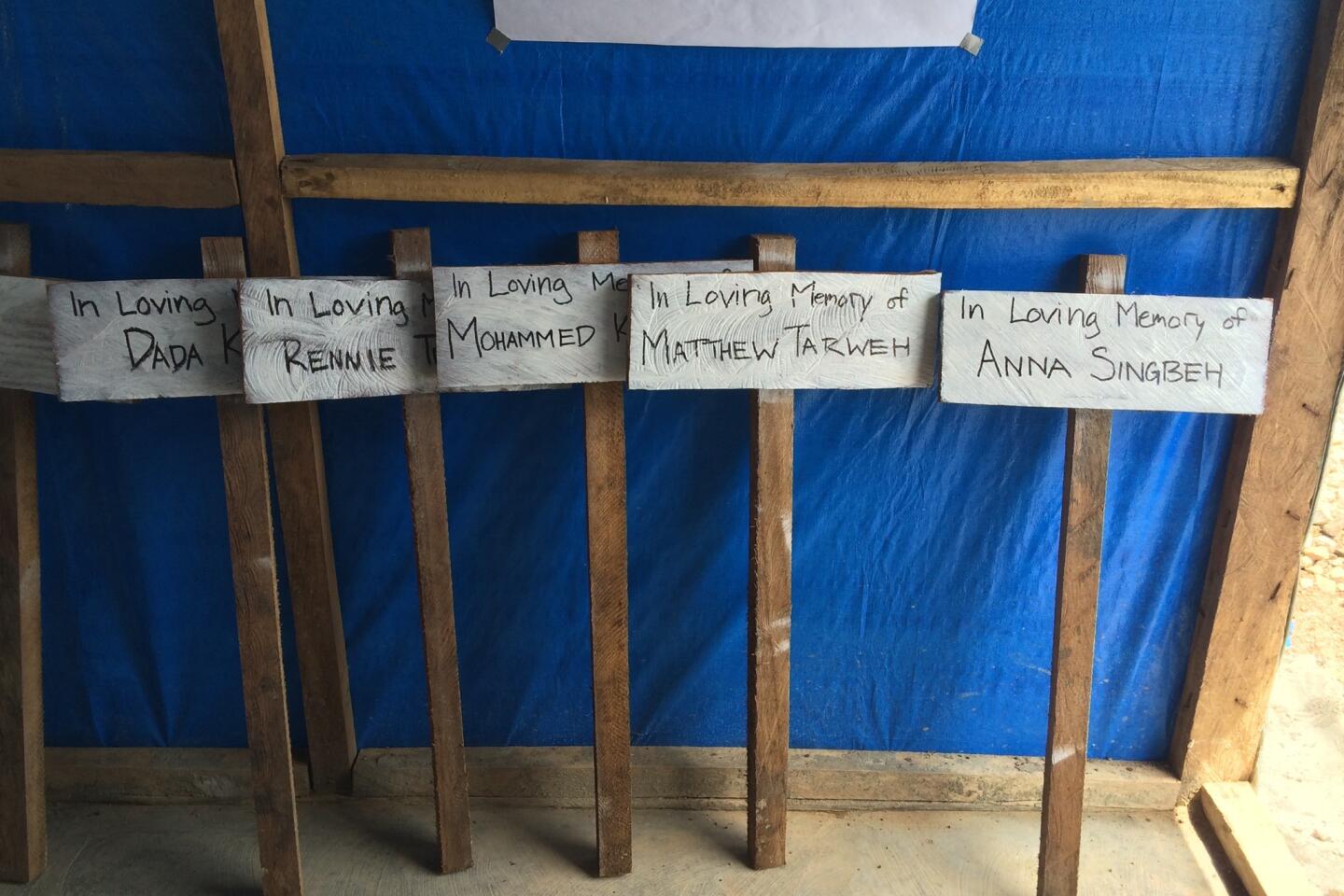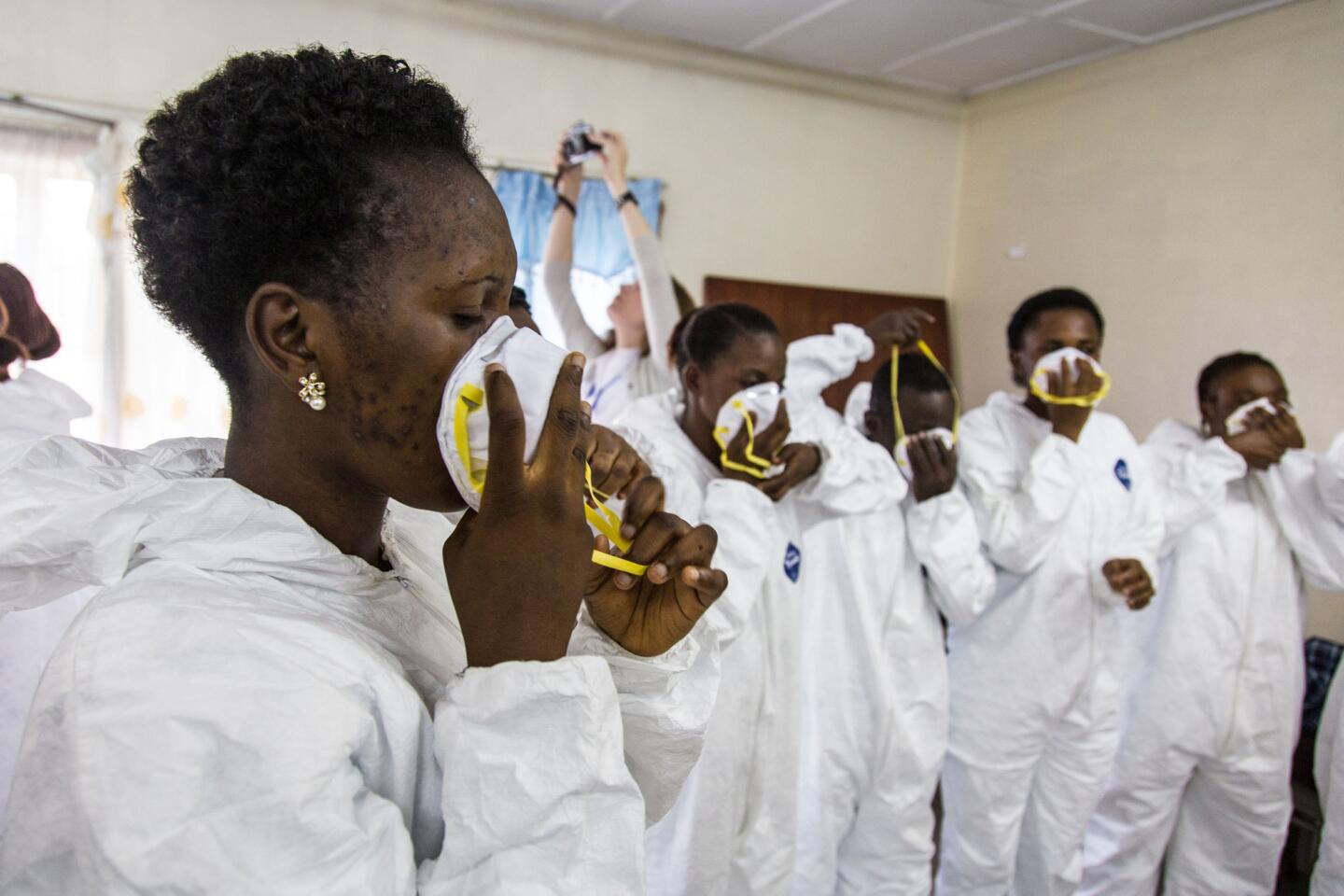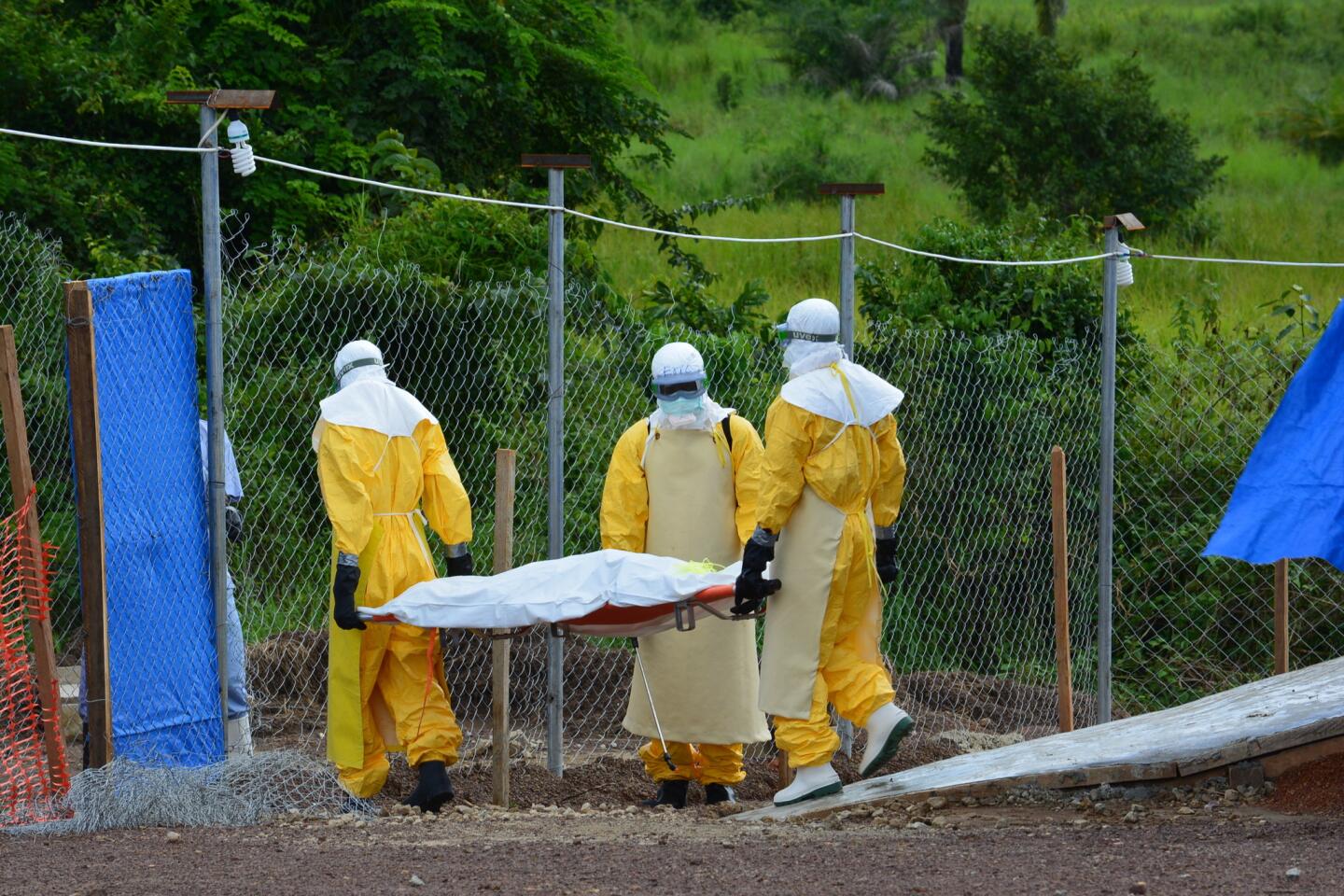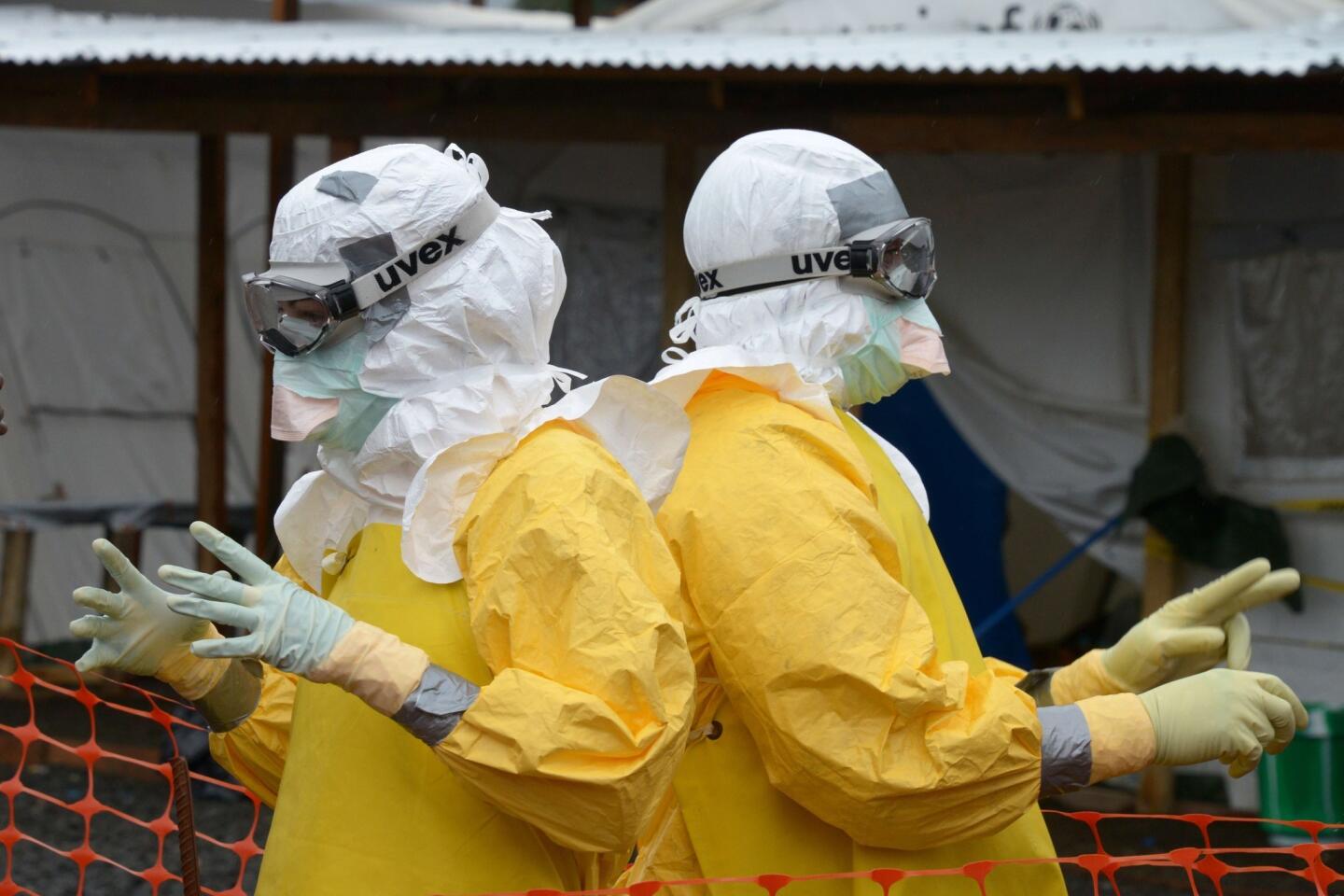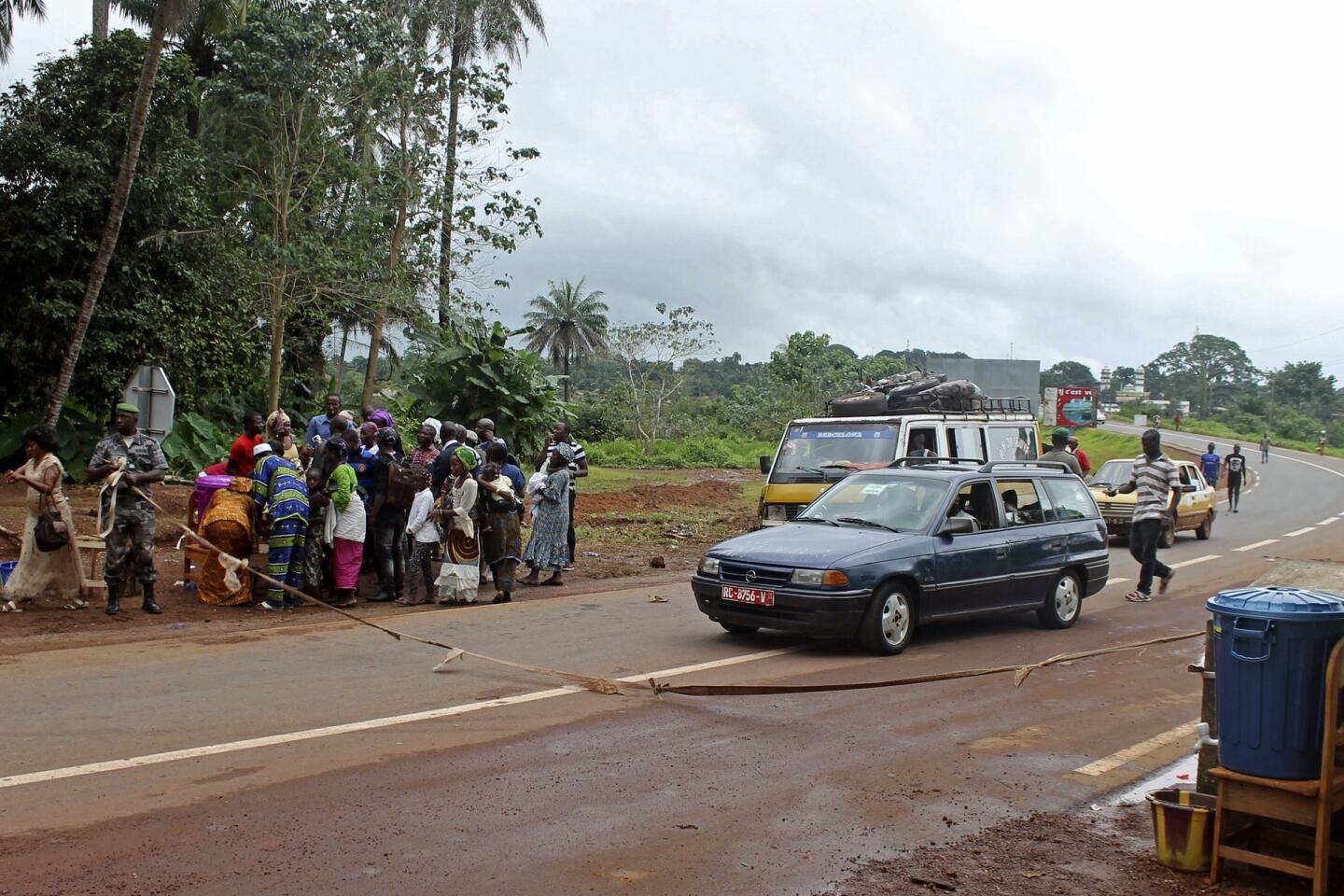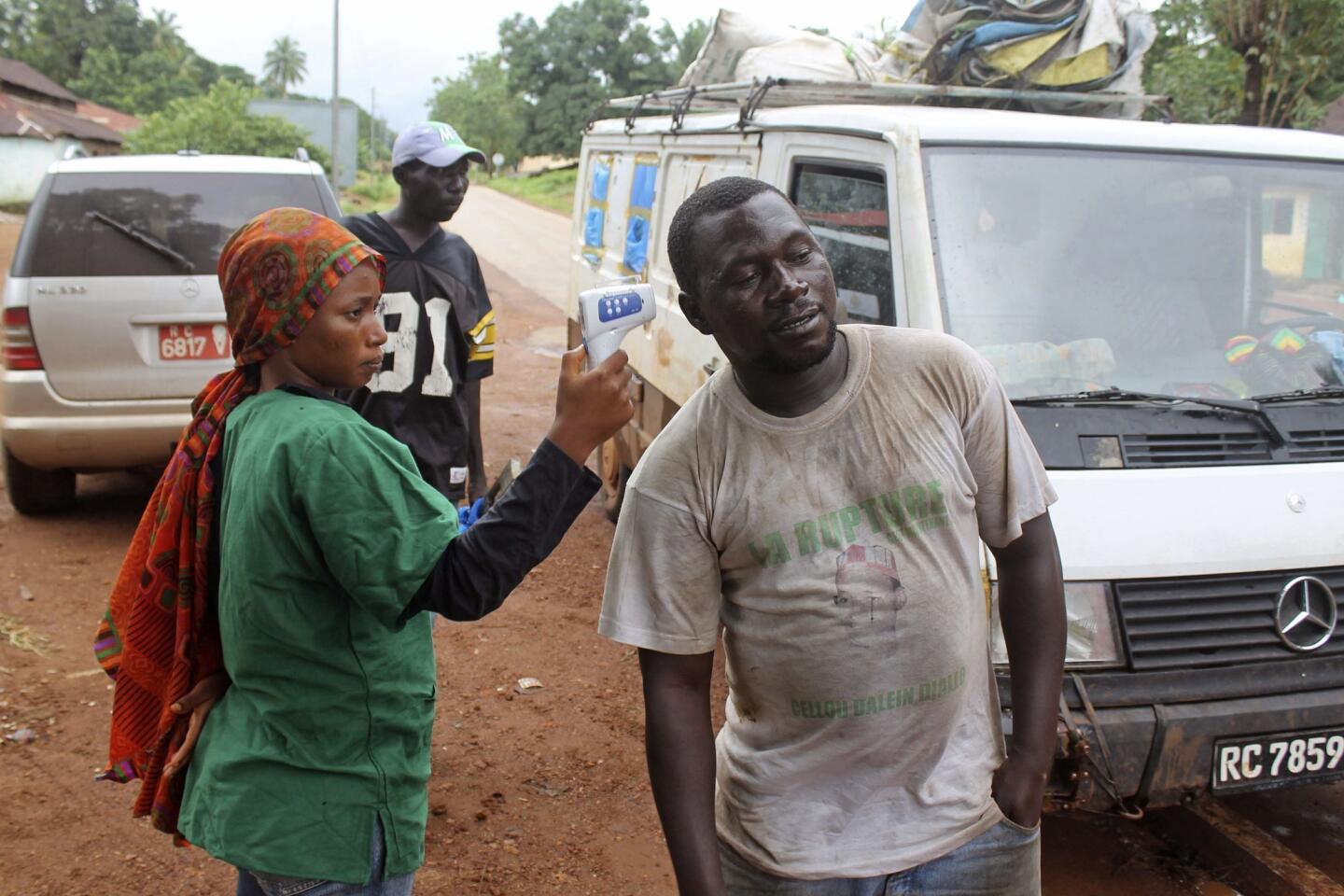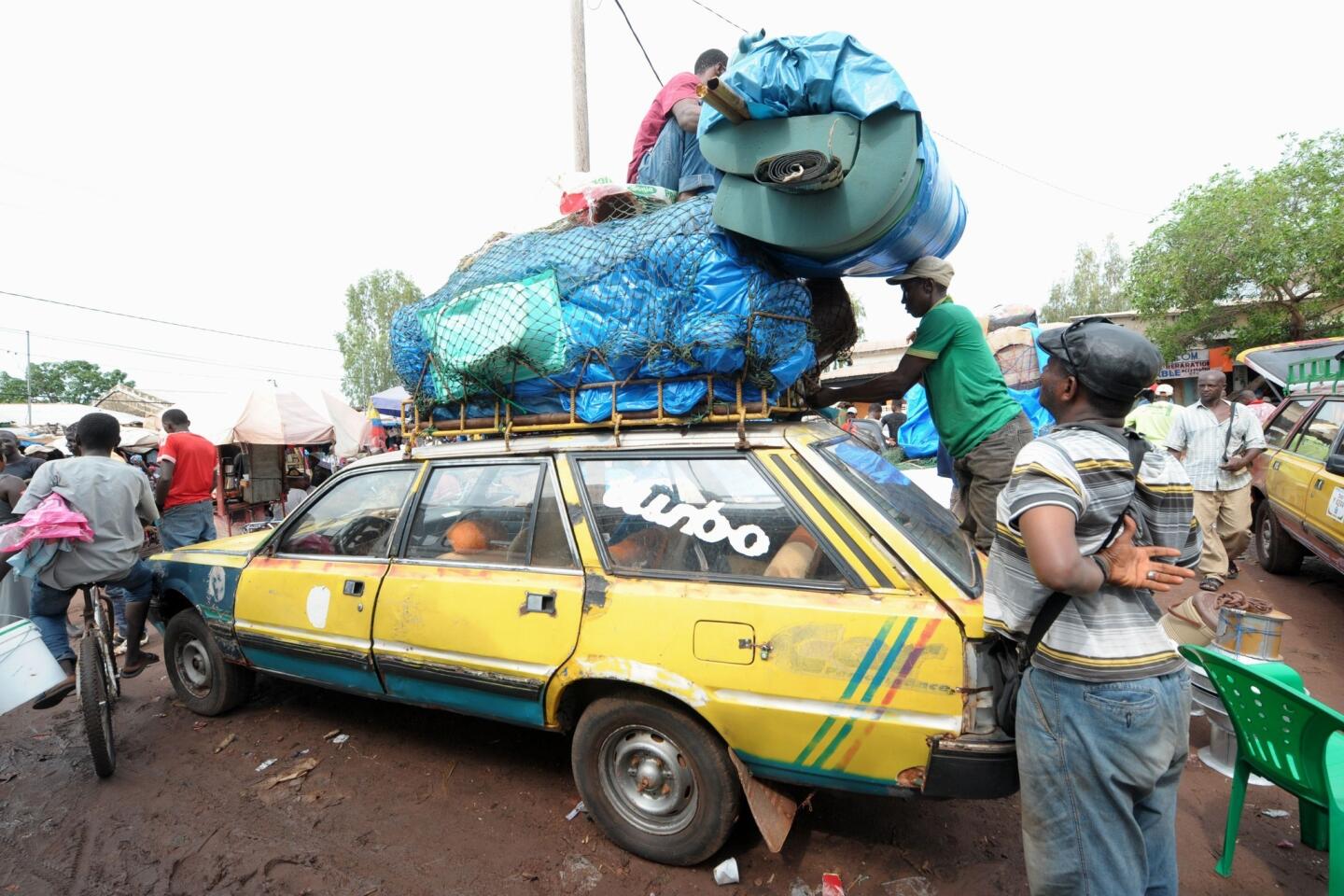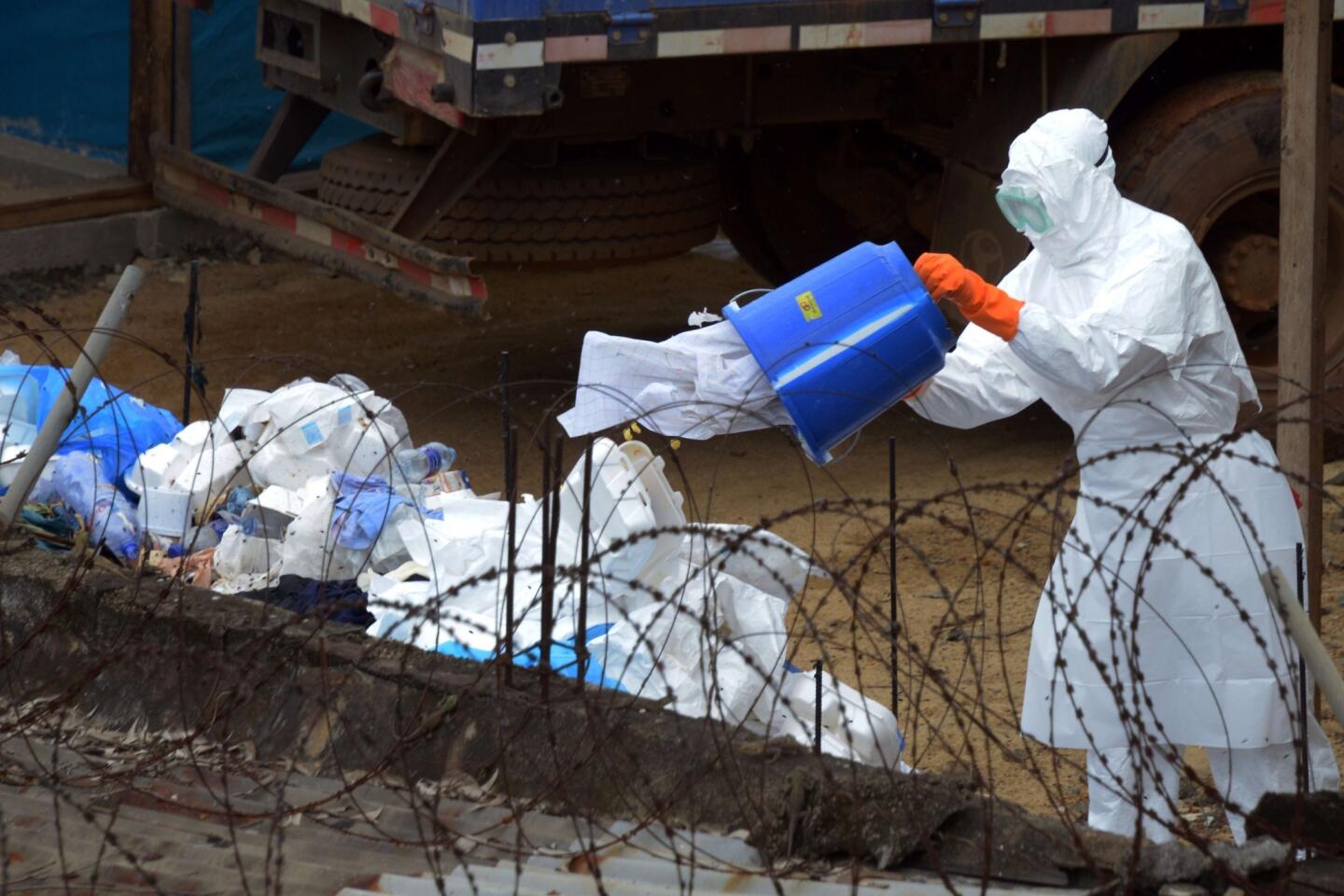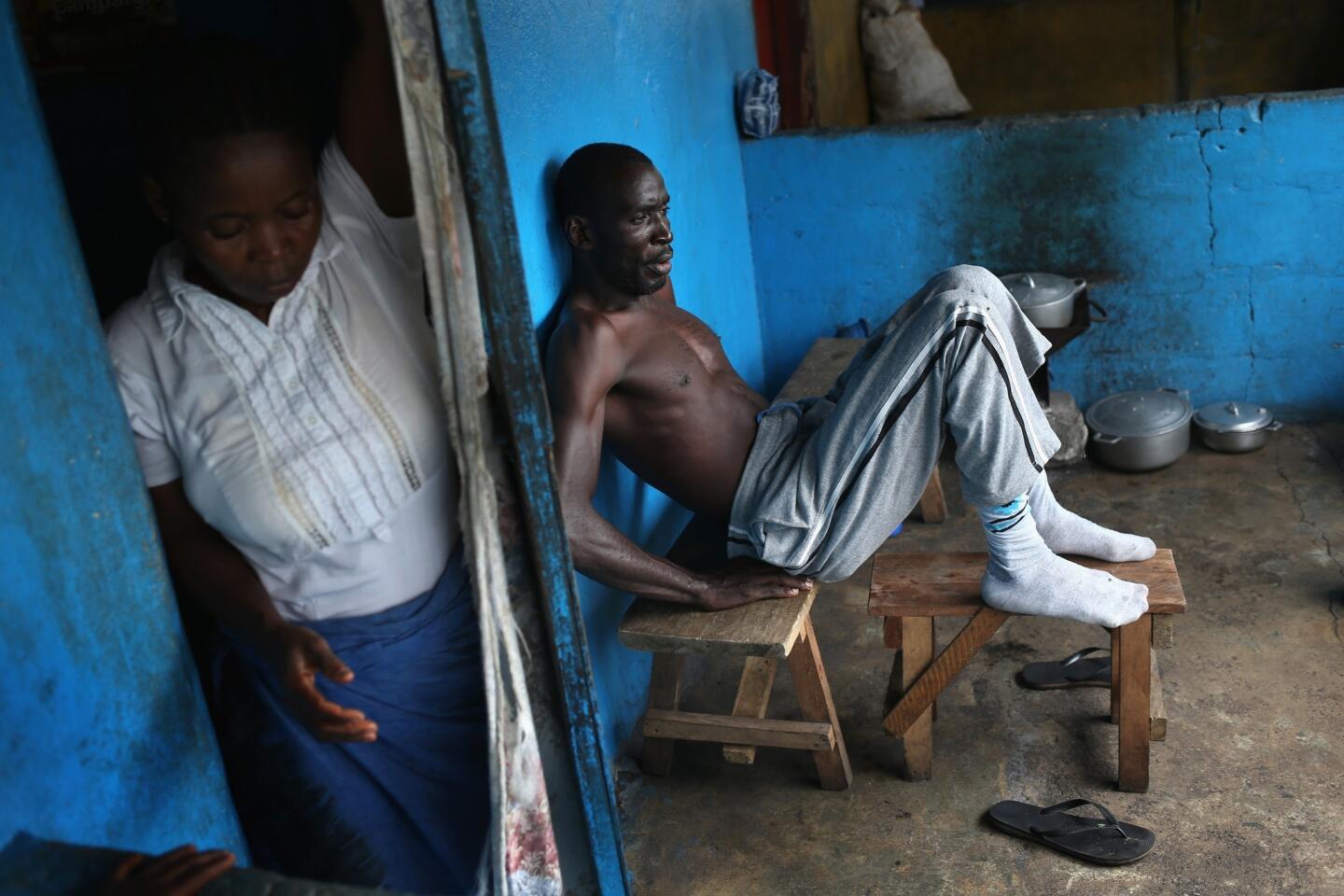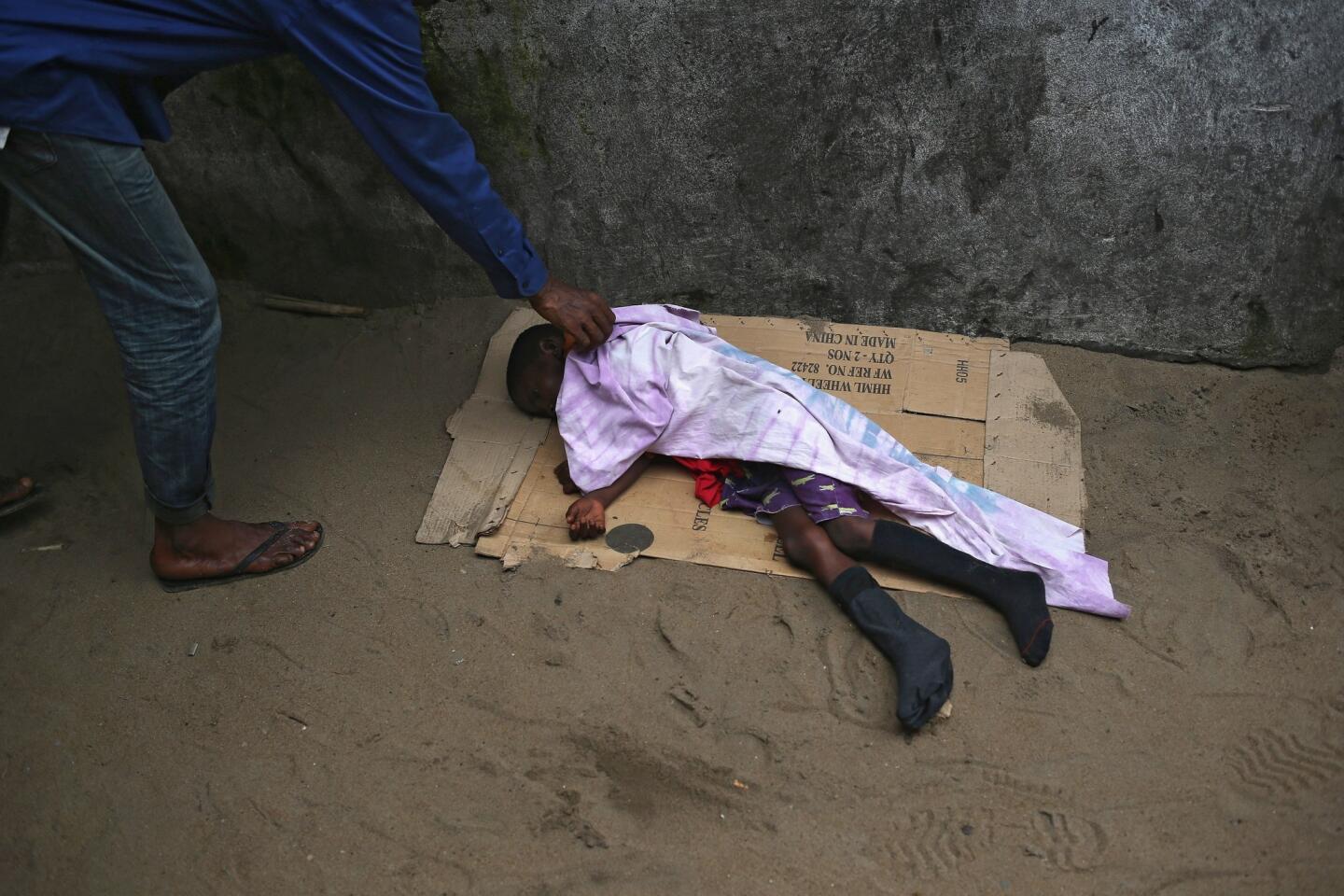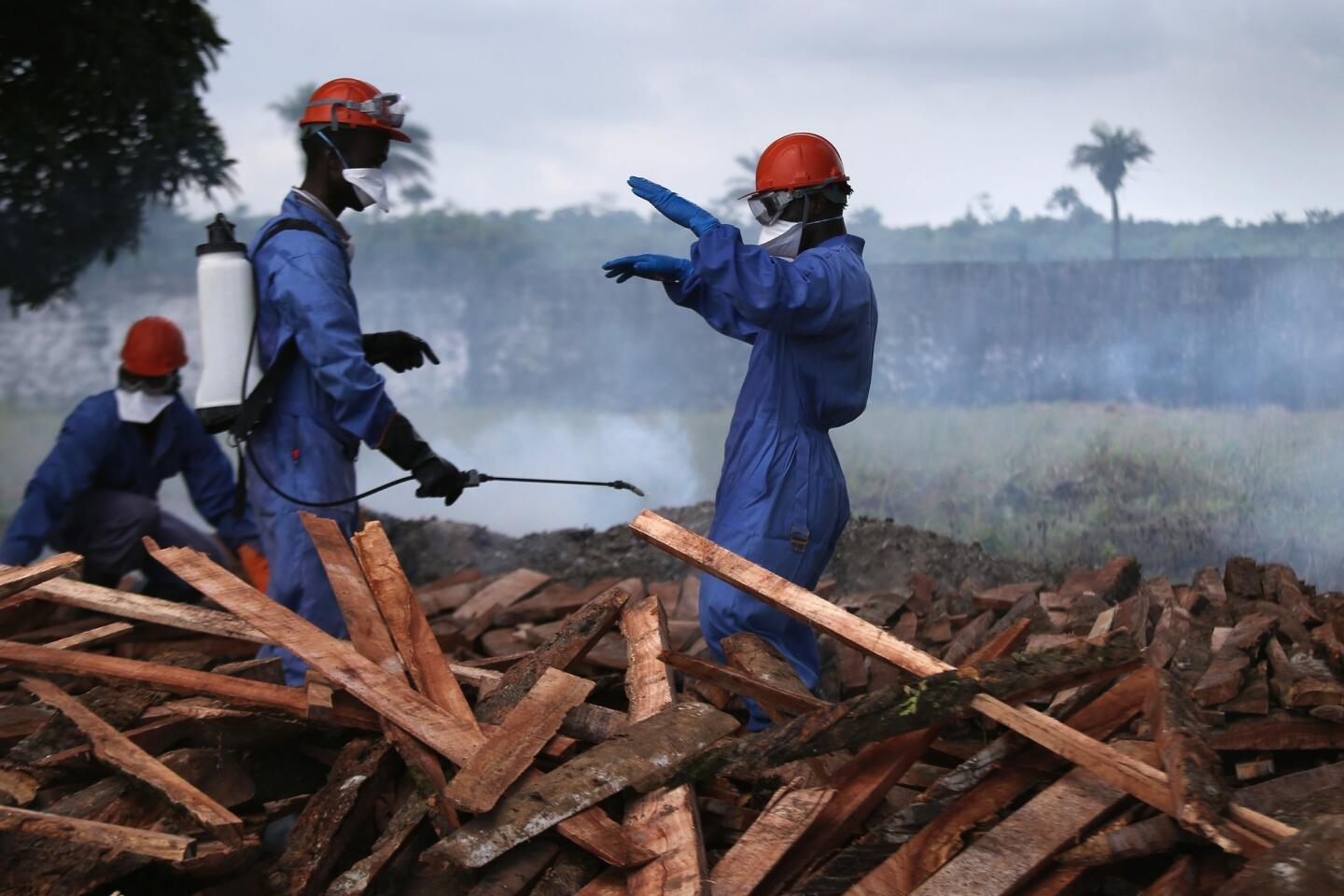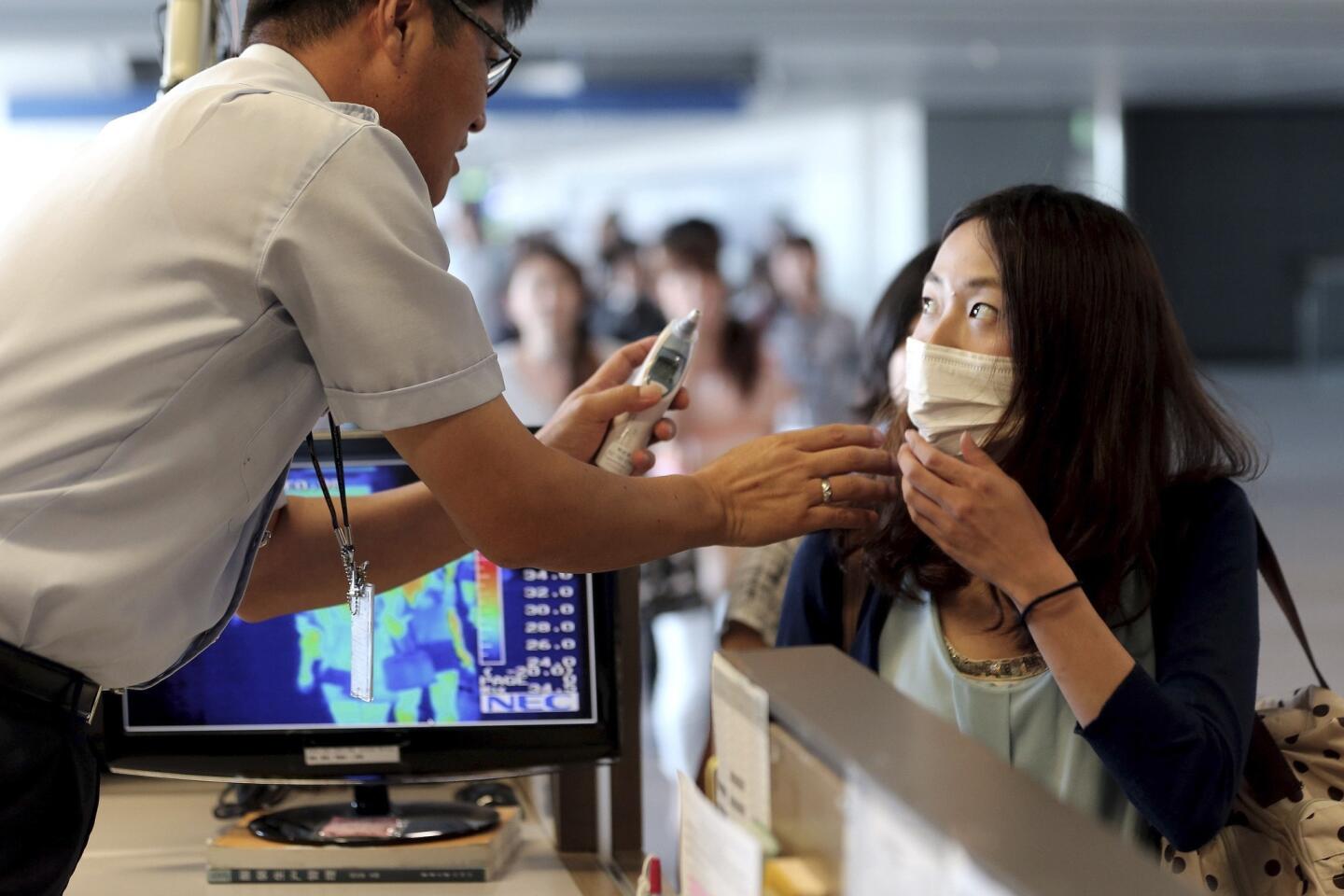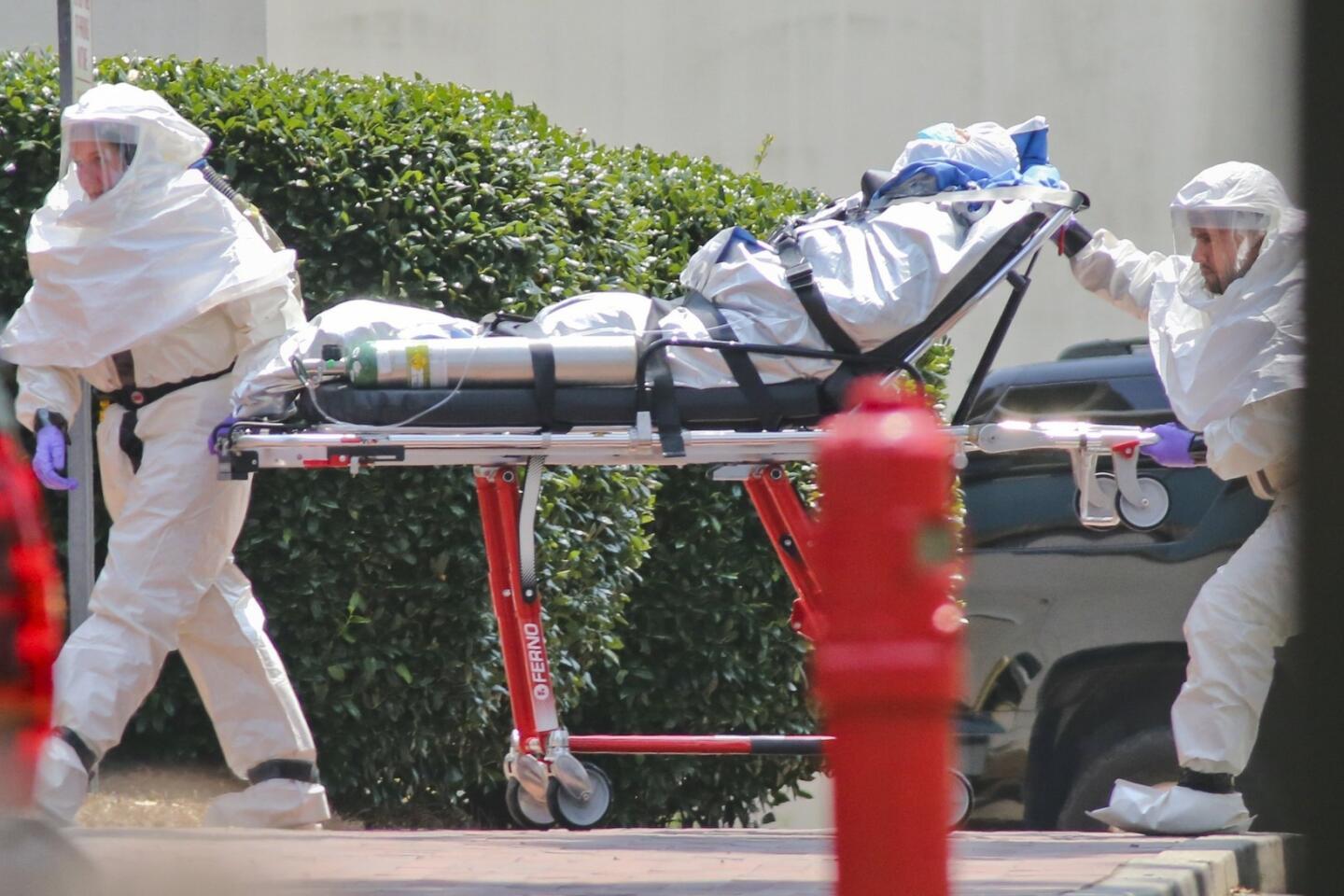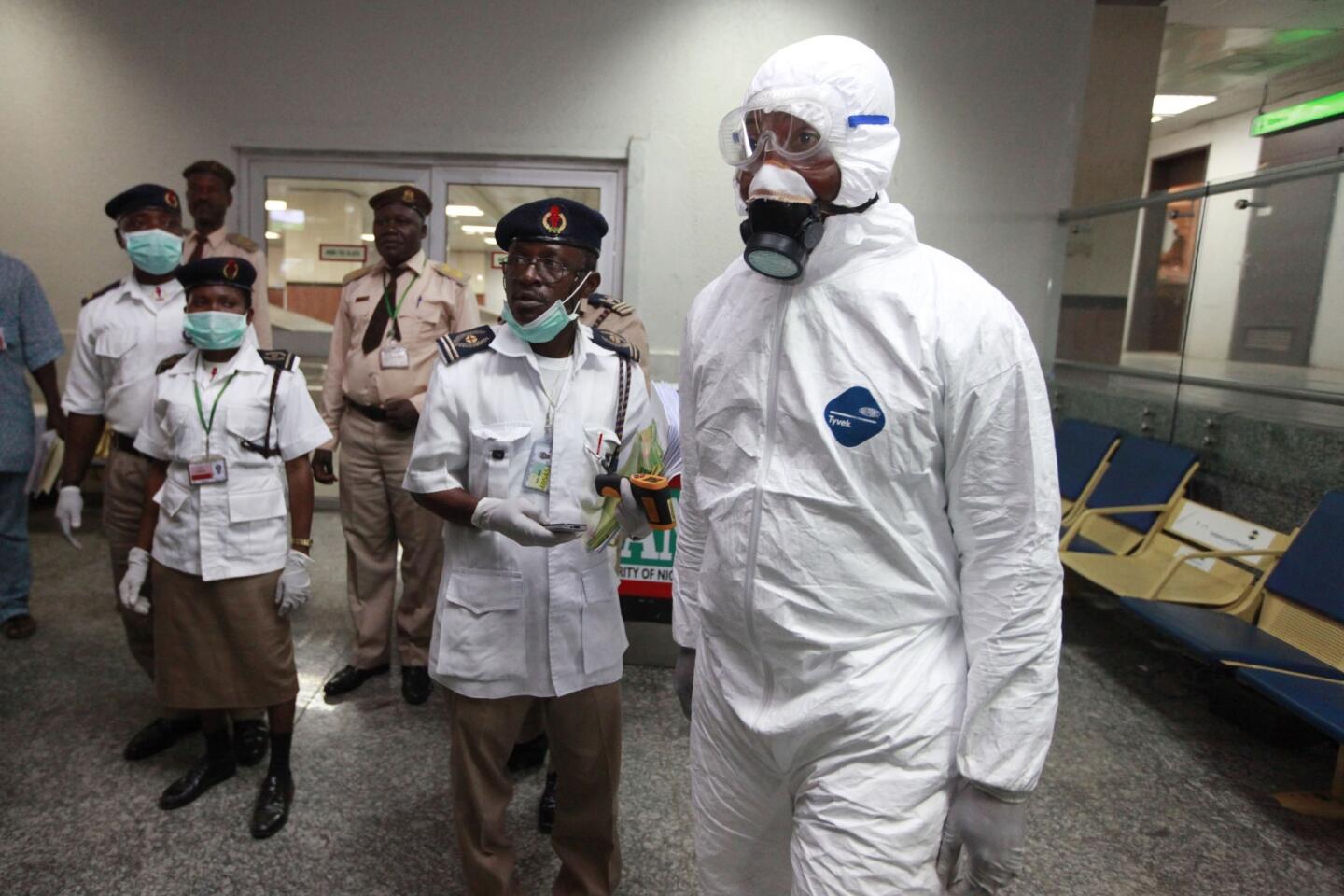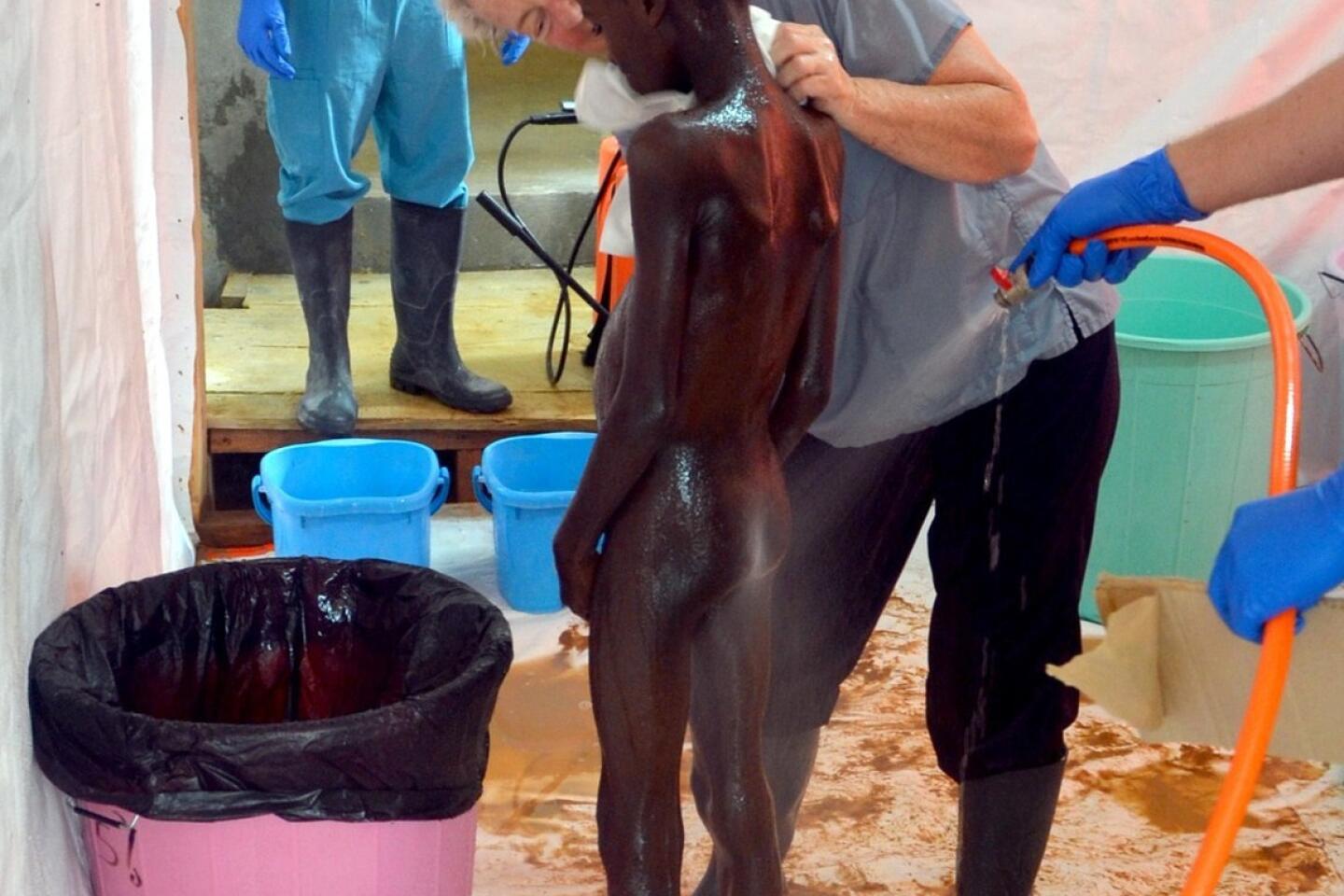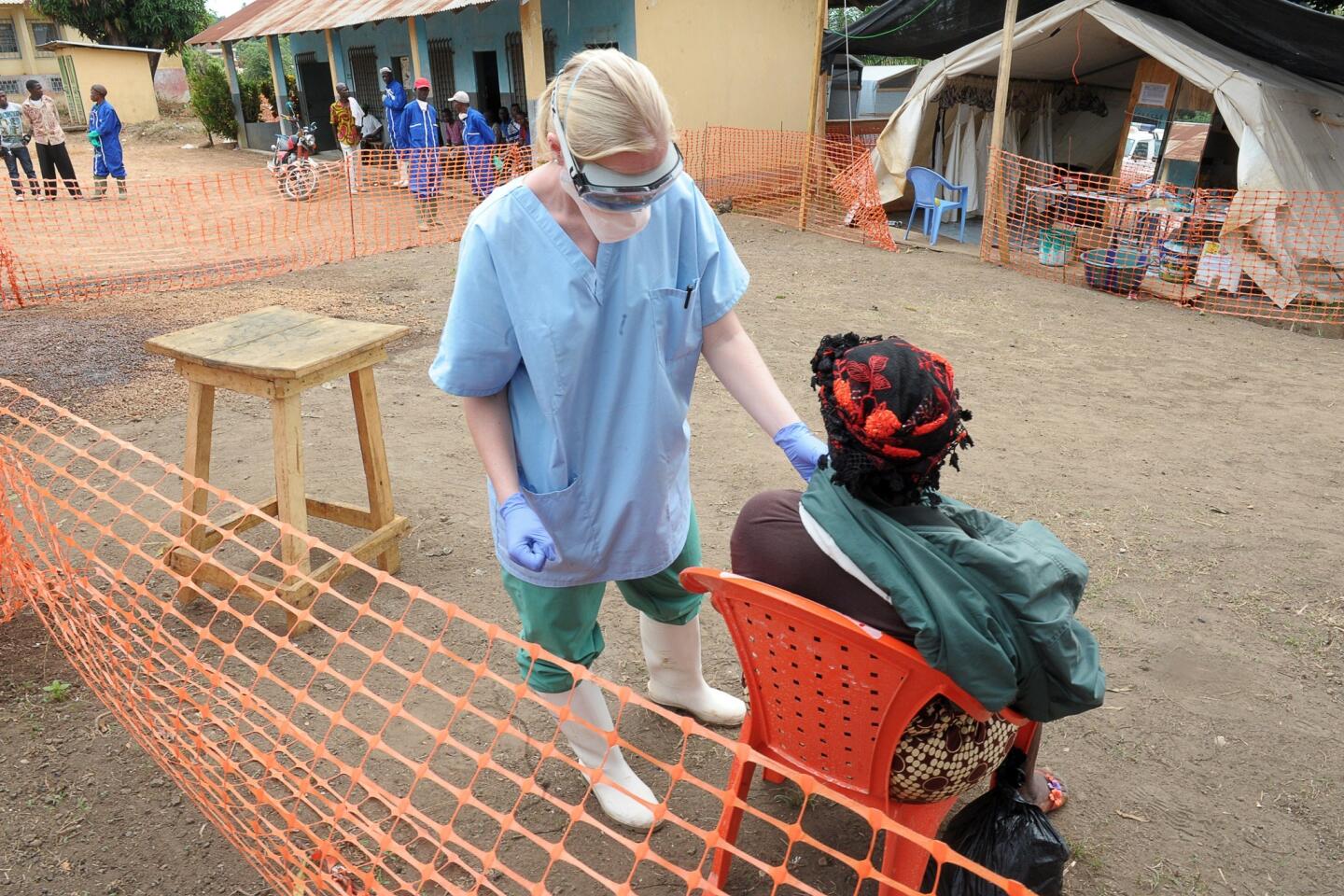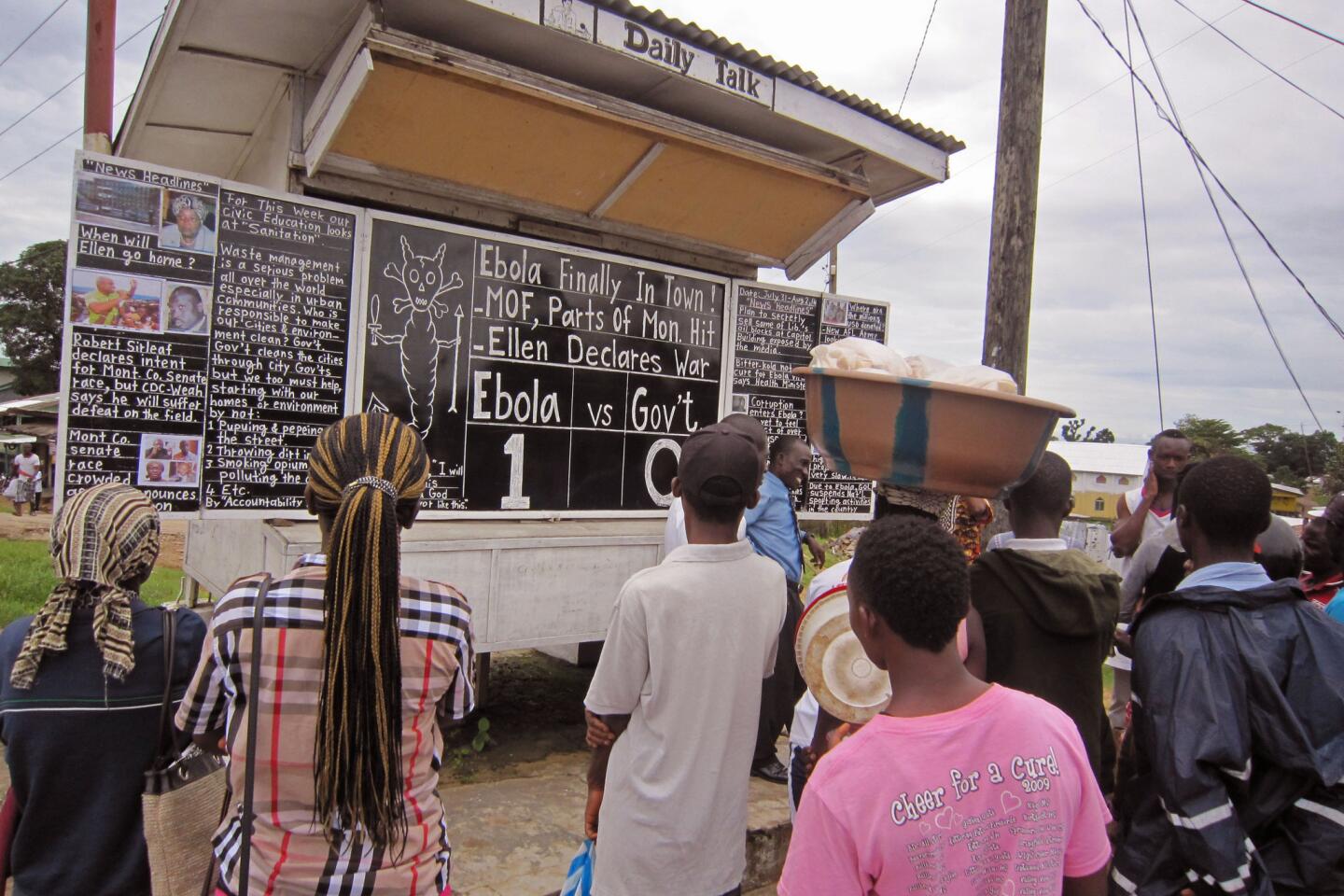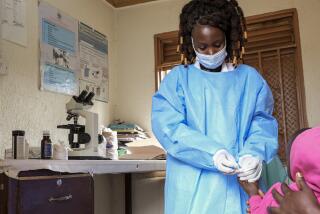Editorial: Disparity in Ebola aid shows nations’ views of joint responsibility
Since Sept. 8, the death toll from the Ebola epidemic in West Africa has grown from about 1,900 to well above 2,600 — an increase of more than 36% in less than two weeks. Perhaps the world should have realized earlier that this wasn’t another small outbreak, and should have responded more vigorously. Perhaps most countries hadn’t taken into account the fact that the World Health Organization’s budget had been so deeply cut that it no longer could act as the first responder to far-flung medical crises. But whatever the reason, it took a while — too long — for the level of contagion in Liberia, Guinea and Sierra Leone to become obvious, and for the rest of the world to recognize just how much money and assistance would be required both to treat the sick and prevent the outbreak from spreading.
There’s no excuse now for any developed nation not to respond quickly and generously. The United States, to its credit, has more than shown the way. President Obama has offered to lead and organize an international response. He is seeking congressional approval to spend close to $1 billion in assistance, much of it redirected from elsewhere in the budget. That includes $500 million for the deployment of 3,000 troops to build treatment centers and train desperately needed healthcare workers. Congress should waste no time approving the request.
Time is money, in this case. Just weeks ago, the U.N. was warning that $600 million was needed to fight Ebola, and that without quick intervention the number of sick people might reach 20,000 within a few months. Now at least $1 billion is needed, and the potential threat to life is in the hundreds of thousands.
But Obama is right when he says there is even more at stake. Without food, water, assistance with crowd control and compliance on the part of the affected population with rules intended to reduce the risk of contagion, conditions in these already dysfunctional nations will escalate into a global security threat as a regional health crisis.
The United States should be proud of its humanitarian leadership. The question is whether other nations will see its generosity as a model to be followed, or as an excuse to be cheap. So far, the contrasts are striking: The relatively wealthy European Union has pledged only about $180 million toward the effort, a significant sum but one that pales next to that from the United States. China has offered to send 174 medical experts, most of whom already are in Africa. Compare that with Cuba, a none-too-wealthy nation that is sending almost the same number of medical personnel even though its population is less than 1% of China’s. Russia is doing almost nothing, while a single private organization, the Bill & Melinda Gates Foundation, has pledged an astonishingly generous $50 million.
There are signs, in all this, that although the economy may have become globalized, the sense of joint responsibility for the world’s welfare hasn’t.
Follow the Opinion section on Twitter @latimesopinion
More to Read
A cure for the common opinion
Get thought-provoking perspectives with our weekly newsletter.
You may occasionally receive promotional content from the Los Angeles Times.
